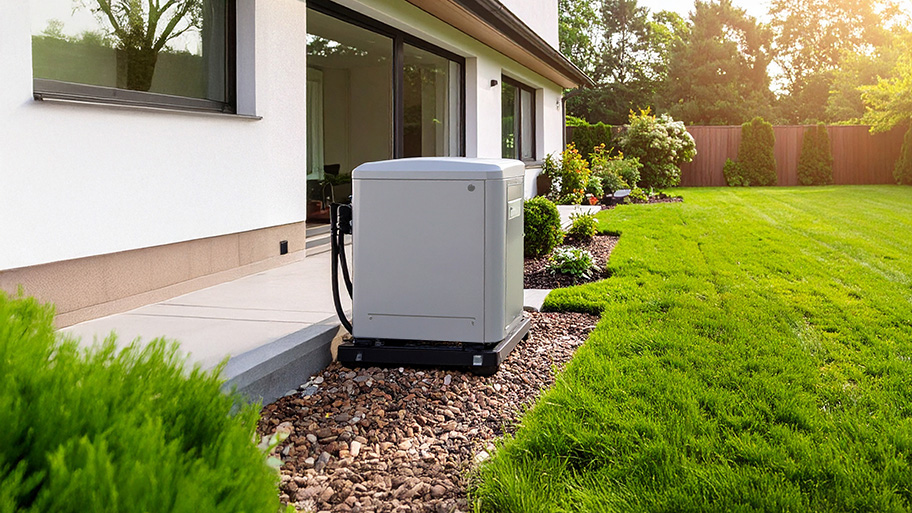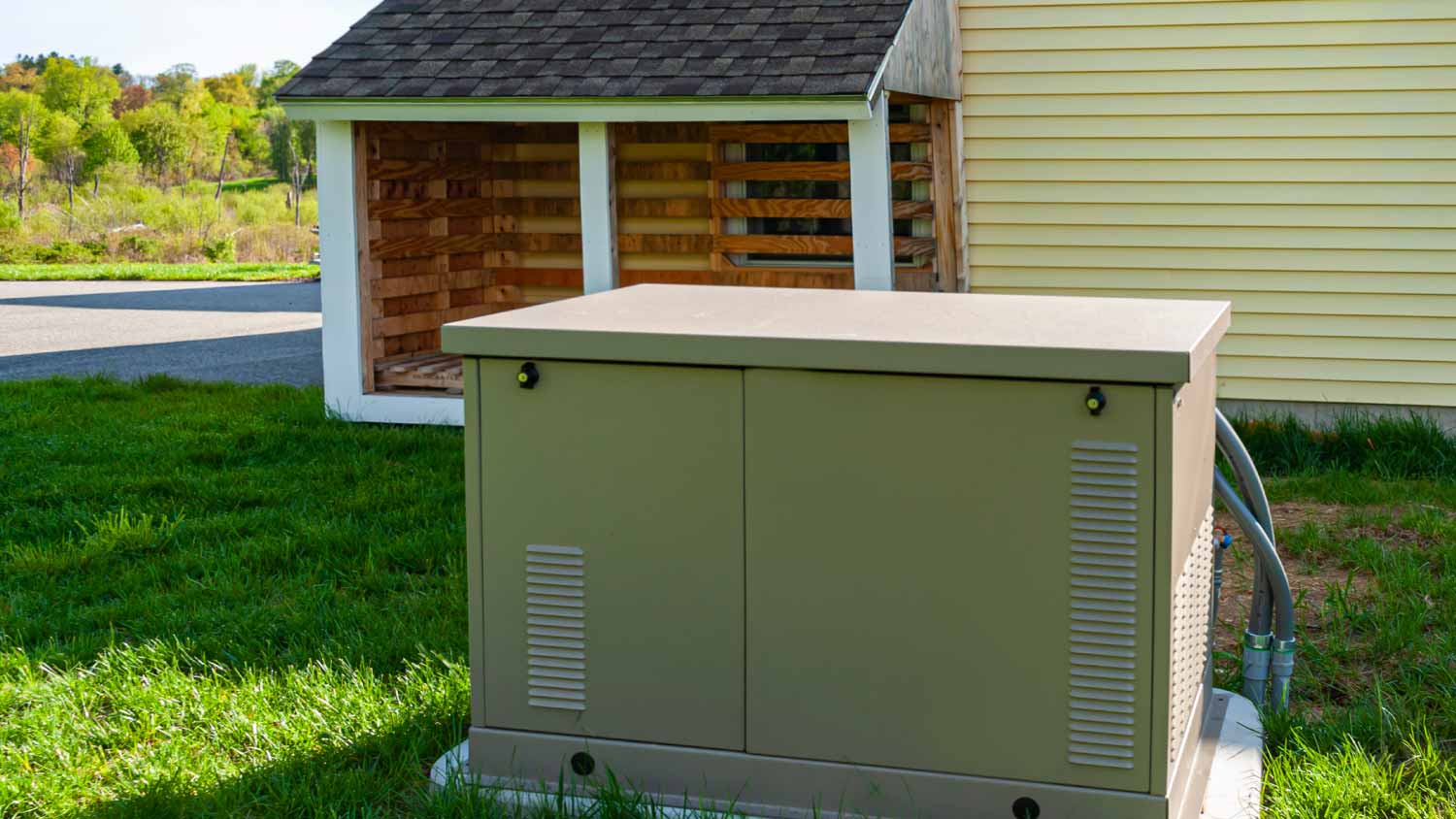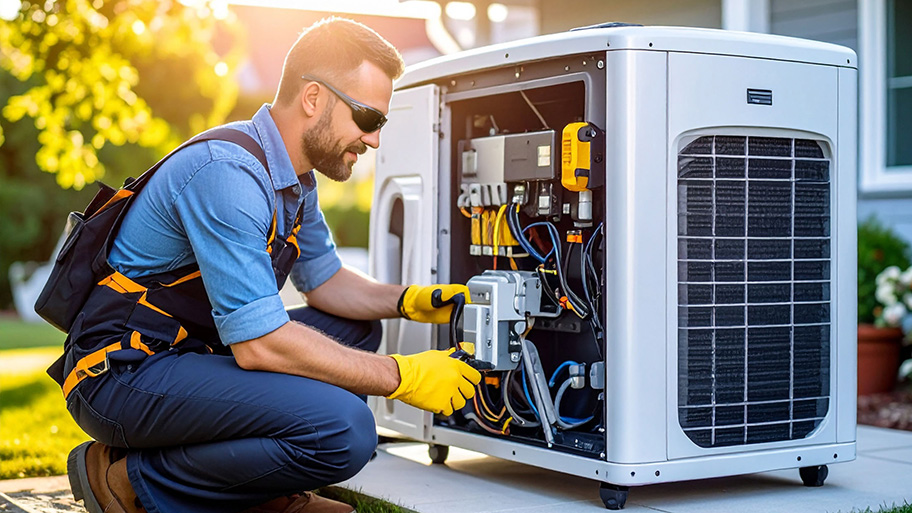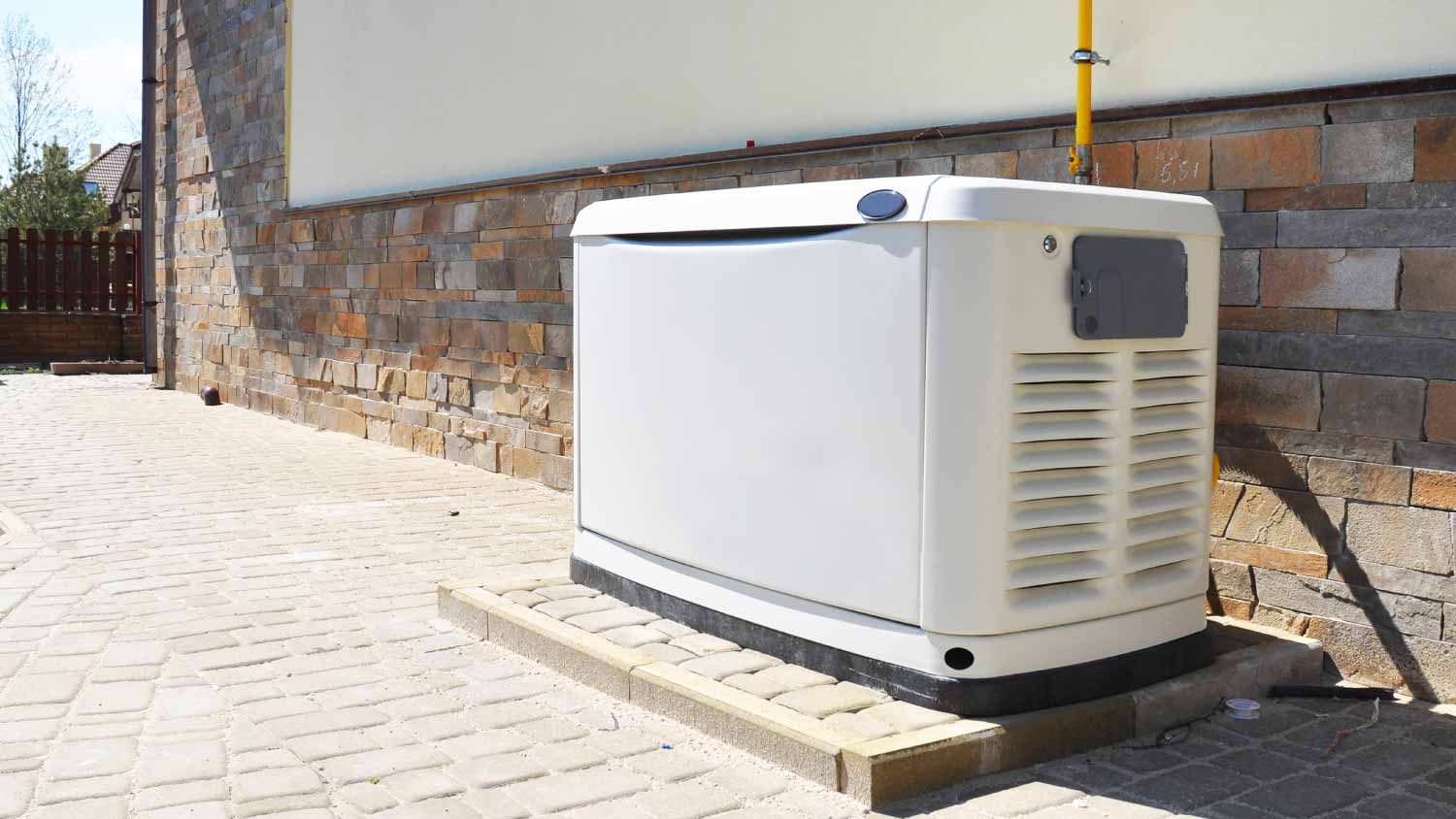
The average cost of a whole-house generator falls between $5,000 and $25,000. Keep reading to learn how much you can expect to spend.
Choose the right generator based on your needs, budget, and power quality requirements


Traditional generators offer high power output at a lower price than inverter generators.
Inverter generators run more quietly and use fuel more efficiently than traditional generators.
Traditional generators require more maintenance and consume more fuel.
Inverter generators cost more upfront but require less upkeep.
Traditional generators are bulkier, while inverter models are more lightweight.
Generators are crucial for providing power during emergencies and in remote locations where access to the grid is limited. The two primary options are a traditional generator vs. inverter generator. Both generate electricity when the power goes out, but they work differently and have their respective sets of advantages and disadvantages. So, which is the best for your home? Let’s take a look at how the two types of generators compare.

Both generators and inverter generators provide backup power but differ in efficiency, noise levels, and installation cost. Traditional generators are the go-to option for a reliable source of backup power at an affordable price. They’re great for powering residences, construction sites, and commercial buildings during power outages. However, they are loud, burn through fuel quickly, and require regular maintenance.
Inverter generators are quieter, more fuel-efficient, and provide cleaner power than traditional generators by adjusting output based on demand. They’re perfect for camping, RVs, and keeping essential appliances running during an emergency. However, they cost more and aren’t as powerful, so they might struggle to run multiple large appliances at once.

| Pros | Cons |
|---|---|
| Broad range of power capacities | Higher fuel consumption |
| More affordable | Louder |
| Reliable technology | Requires frequent maintenance |
Best for:
Providing backup power in homes during electrical outages
Powering construction sites
Use at commercial buildings
Providing extra power at large events
When you need consistent, stable power, a traditional generator can supply your home through multiple days of blackouts. They’re more economical compared to inverter generators, so if your budget is on the lower end then you’ll likely be able to find an option that fits your needs. Plus, many traditional generator models are designed for easy maintenance, with parts and service readily available. As long as you perform routine maintenance, such as oil changes and filter replacements, your generator should last for years to come.
The most common complaint about generators is their noise level. When they’re up and running, your neighbors will likely be able to hear their racket from across the street. Generators also are less fuel efficient, as they lack the newer technology to adjust to power demands from homes or businesses.

Inverter generators feature advanced technology to achieve greater fuel efficiency while maintaining power stability. Rather than constantly operating at maximum capacity, these generators regulate power consumption based on demand, resulting in fuel savings and reduced emissions.
| Pros | Cons |
|---|---|
| Provides clean, stable power | More expensive |
| Quieter | Hard to power large appliances |
| Lightweight | Provides lower to mid-range power |
Best for:
Powering essential appliances in homes when power goes out
Providing power at outdoor events
Power needs while camping, boating, or using an RV
The most appealing aspect of inverter generators is their ability to provide clean and stable power. Since they generate power based on demand, they’re quieter and more fuel efficient than standard generators. Since they’re lightweight, they’re typically more portable and you can use them in more situations with little hassle.
The biggest downside of inverter generators is the cost. The cost of a traditional generator falls between $170 and $400, while an inverter generator can cost upwards of $1,000. Although you’ll pay more upfront for an inverter generator, they last longer and require less maintenance over time.
Despite being more fuel-efficient, inverter generators have smaller fuel tanks than conventional models, which may require more frequent refueling. They also have limited maximum power output compared to larger traditional models, making them less ideal for powering multiple appliances at the same time.
While inverter generators are more costly, they feature a range of benefits that make them superior in almost every category. Here’s how they compare to traditional generators.
Traditional generators produce power in a less refined manner than inverter generators. They generate constant electricity by running an engine, typically powered by gasoline or diesel, which directly produces AC power. This power can be less stable and may not be suitable for sensitive electronics without additional equipment like surge protectors.
One of the main disadvantages of inverter generators is their high cost. The average cost of a generator is $500 to $2,000 for portable types, and inverter generators can cost hundreds if not thousands more than comparable generator sizes in traditional models. While prices have slightly decreased over time, these generators still generally have a higher price tag compared to their traditional counterparts.
Inverter generators are engineered for quiet operation, with noise levels typically ranging between 50 to 60 decibels. Conversely, traditional generators emit more noticeable noise, typically within the 70 to 90 decibel range, depending on the specific model.
Inverter generators have superior fuel efficiency thanks to technology that adapts engine speed in response to power demands. They operate at lower speeds during lighter loads and scale up as power demand intensifies. This fuel-saving mechanism translates into extended runtimes and reduced fuel consumption. On the other hand, traditional generators are capable of supplying power but may have higher fuel consumption, especially when dealing with lighter loads.
Inverter generators excel in portability due to their compact size and integrated handles for added ergonomics. This mobility makes it easier to carry and hook the generator up to your house, plus it makes them the ideal companions for outdoor travels, camping expeditions, and other off-grid endeavors. Traditional generators, conversely, typically lack portability and may require supplementary accessories like wheel kits to enhance their mobility.
Due to their streamlined design and advanced technology, inverter generators require less upkeep than their traditional counterparts. Some models feature built-in features, such as automatic shut-off, to further safeguard against potential damage and extend the generator’s overall lifespan.
Inverter generators are available in various power capacities, but they are often limited to smaller to mid-sized applications. They are suitable for powering essential appliances during power outages or providing power for recreational use. Traditional generators come in a wider range of power capacities, from small portable units to large standby generators capable of powering an entire home or business. They are better suited for heavy-duty and industrial applications.
With their constant engine speed, regardless of power consumption, traditional generators tend to see more wear and tear than inverter generators. An inverter generator’s capability of adjusting its engine speed based on the electrical load not only makes it more fuel-efficient but more durable, too.
Remember that portable generators can’t get wet, regardless of whether it’s a traditional generator or an inverter generator. Always store them in a dry, sheltered area when not in use, and never try to operate them when wet. Optional covers and mini shelters can protect a portable generator in light rain or snow, but they’re still unsuitable for severe weather such as high winds or heavy rain. Whole-house generators can operate in the rain but must remain protected underneath a dry, hard surface.
Many models of inverter generators feature parallel compatibility, enabling them to connect to other inverter generators to boost their power output. This expanded power capacity is especially useful for simultaneously powering high-wattage appliances and multiple devices. Traditional generators, on the other hand, do not offer this functionality.
From average costs to expert advice, get all the answers you need to get your job done.

The average cost of a whole-house generator falls between $5,000 and $25,000. Keep reading to learn how much you can expect to spend.

The cost to install a generator transfer switch depends on several factors. Our guide will help you understand all of the costs.

Keeping on top of generator maintenance and repairs gives you extra peace of mind as a homeowner. Find out how much regular generator maintenance costs.

Whole house generators are a power alternative that can deal with frequent blackouts and other problems. Here’s how they function.

Whole home generator installations require a professional hand. Read this guide to help you decide which generator is best for your home.

Generators are a home essential when a power outage strikes. Compare home standby generators vs backup battery systems to find the best one for you.